Recent Blog Posts
Is Human Smuggling A State or Federal Crime in Texas?
 At more than 1,200 miles, Texas has the longest border with Mexico than any other state in the country. Although concerns about illegal immigration are largely a federal matter, state lawmakers and residents in many ways see it as a state issue as well. So, it begs the question: when is human smuggling a state or federal crime in Texas?
At more than 1,200 miles, Texas has the longest border with Mexico than any other state in the country. Although concerns about illegal immigration are largely a federal matter, state lawmakers and residents in many ways see it as a state issue as well. So, it begs the question: when is human smuggling a state or federal crime in Texas?
The short answer is the fate of a person who smuggles illegal immigrants, or people who have entered the country without prior authorization from the U.S. government, largely depends on the law enforcement agencies involved in the arrest and the severity of the crime
State Human Smuggling Laws
The Texas Penal Code considers the smuggling of persons as a felony and defines it in three different ways
-
First, it is when you use a vehicle to transport a person into the country illegally and also use that vehicle to hide the person from government authorities.
New Anti-Smuggling Law Enhances Penalties For Human Trafficking
 Texas Governor Greg Abbott signed a new anti-smuggling law last month that increases the penalty for human smuggling. It also removes the need for prosecutors prove that a smuggler received payment for the smuggling. He explains that Senate Bill 576 will expand the tools that will “help us crackdown on human smuggling and keep our communities safe.”
Texas Governor Greg Abbott signed a new anti-smuggling law last month that increases the penalty for human smuggling. It also removes the need for prosecutors prove that a smuggler received payment for the smuggling. He explains that Senate Bill 576 will expand the tools that will “help us crackdown on human smuggling and keep our communities safe.”
Governor Abbott signed the bill on September 22 at a ceremony in McAllen, a border town that serves as a major port of entry. State Representative JM Lozano, a Republican from Portland who sponsored the bill, joined the governor during the signing ceremony.
Senate Bill 576
According to the new law, human smuggling is defined as:
- Using a vehicle such as a car or boat to transport a person into the country illegally AND
- Using that vehicle to hide the smuggled person from state or federal authorities
Additionally, the law also defines human smuggling as assisting, guiding, or directing two or more people through private land without the owner’s consent. And, lastly, the law defines human smuggling as encouraging or forcing a person to stay in the country illegally by hiding them from the authorities.
New Law Prohibits Bond For Those Charged With Violent Crime
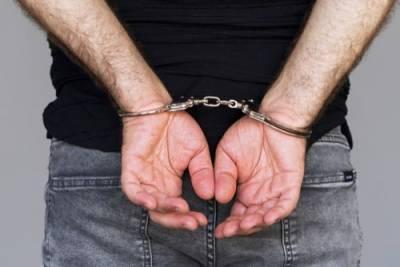 This month, Texas Gov. Greg Abbott signed a measure that rewrites the state’s bail system. The governor and his supporters say Senate Bill 6, dubbed the Damon Allen Act, will increase public safety. Critics argue it will just make things harder for people who cannot afford a cash bond.
This month, Texas Gov. Greg Abbott signed a measure that rewrites the state’s bail system. The governor and his supporters say Senate Bill 6, dubbed the Damon Allen Act, will increase public safety. Critics argue it will just make things harder for people who cannot afford a cash bond.
The Damon Allen Act
The Damon Allen Act amends the current bail system by prohibiting personal bond to those charged with a violent crime or who have been arrested while released on bail. Additionally, the measure requires that the court consider the defendant’s criminal history before granting or denying bond and do so within 48 hours of their arrest.
State Sen. Joan Huffman, a Republican representing District 17, explained the Damon Allen Act requires the court to establish a Public Safety Report System, a database accessible by court officials so they can review the defendant’s criminal history and overall risk. The measure will also require the bond setter to complete a form stating that they conducted the risk assessment before granting bond.
Sex With A Person In Custody Now A Felony
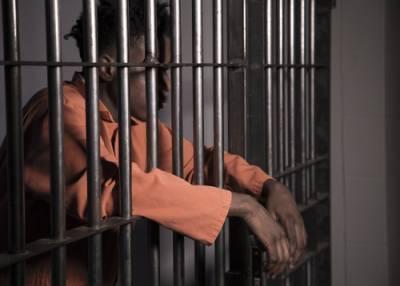 Texas enacted more than 650 new laws on September 1, including a law elevating the consequences for guards who have sex with an inmate. Improper sexual activity with a person in custody is now a second-degree felony, on par with sexual assault.
Texas enacted more than 650 new laws on September 1, including a law elevating the consequences for guards who have sex with an inmate. Improper sexual activity with a person in custody is now a second-degree felony, on par with sexual assault.
Senate Bill 312 was filed in January by state Sen. Joan Huffman, a Republican representing District 17, which covers Harris County. It passed unanimously in both the state House and Senate before it was signed into law, without comment, by Gov. Greg Abbott.
Debate About SB 312
Critics of the measure say it was unnecessary because improper sexual activity with a person in custody was already punished as a state jail felony. Under the law, a guard having sex with an inmate is looked at as rape because of the power dynamic. Therefore, the bill would be moot.
Supporters of the bill say such a serious crime required a more serious punishment than what was set by state law. They argued that the law considered improper relationships between a teacher and a student separate from sexual assault, so it should therefore consider improper sexual activity with a person in custody separate as well.
Texas House Bill 2622 Expands Gun Rights
 Starting next month, Texas will enact a number of new gun laws as they join a growing list of states and localities that are calling themselves “Second Amendment sanctuaries.” While the legislation is largely symbolic, it does limit the reach of federal gun laws in the state of Texas.
Starting next month, Texas will enact a number of new gun laws as they join a growing list of states and localities that are calling themselves “Second Amendment sanctuaries.” While the legislation is largely symbolic, it does limit the reach of federal gun laws in the state of Texas.
State Rep. Justin Holland filed House Bill 2622, the Second Amendment Sanctuary State Act, in March with the intention of protecting Texans’ gun rights from the federal government, which he called “out-of-touch” on the issue. The measure passed committee votes in both chambers with a majority.
Texas Gov. Greg Abbott applauded the legislation as he signed it in June alongside seven other gun bills. He explained the goal was to build a “barrier around gun rights.”
New Gun Laws in Texas
The Second Amendment Sanctuary State Act will prevent the enforcement of any federal gun law passed after Sept. 1, 2021, that restricts the possession or ownership of firearms, gun accessories, or ammunition. In turn, it also prohibits state agencies from enforcing or assisting in the enforcement of new federal gun laws.
Can Police Wait Outside A Bar For DWI Suspects?
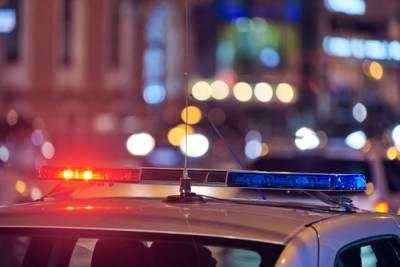 When a police officer makes personal contact during a drunk driving investigation, they will ask you questions like: Where are you coming from? What were you doing there? Where are you headed? This line of questioning is often used by police if they suspect that you were driving while intoxicated.
When a police officer makes personal contact during a drunk driving investigation, they will ask you questions like: Where are you coming from? What were you doing there? Where are you headed? This line of questioning is often used by police if they suspect that you were driving while intoxicated.
Over time, many police notice patterns with bars where patrons like to get drunk, their hours of operation, and an area nearby where you might violate a traffic law. Many wonder whether this type of strategic planning is considered “entrapment.”
Armchair experts who have watched a few police procedurals and legal dramas might say that this type of behavior is entrapment, but realistically, this is just targeted enforcement. Police identify an area rife with illegal activity and respond to it accordingly. So, what is entrapment then?
Entrapment According to Texas Law
Under the Texas Penal Code, entrapment is a legal defense you can use to defend yourself in court. Entrapment is when a police officer persuades or influences you to break the law. The above scenario does not qualify because the officer is monitoring an area where he or she will likely see a traffic violation. In other words, they did not make you drink until you were over the legal limit and drive while under the influence of alcohol or drugs.
How Do Police Build a DWI Case?
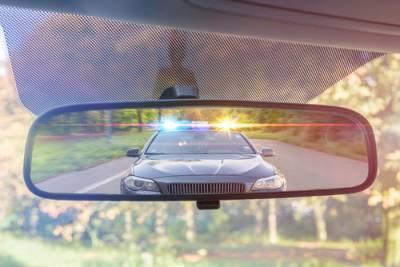 When a police officer conducts a driving while intoxicated (DWI) investigation, they rarely rely on a single clue to determine whether or not you have been drinking, but rather they consider the totality of the circumstances. Officers are looking for signs of drunk driving from the moment they initiate the traffic stop until the moment you are released from their custody. Understanding the evidence police may use to justify a DWI arrest can help you build a strong defense against DWI charges.
When a police officer conducts a driving while intoxicated (DWI) investigation, they rarely rely on a single clue to determine whether or not you have been drinking, but rather they consider the totality of the circumstances. Officers are looking for signs of drunk driving from the moment they initiate the traffic stop until the moment you are released from their custody. Understanding the evidence police may use to justify a DWI arrest can help you build a strong defense against DWI charges.
Clues Officers Look for During a DWI Investigation
This particular stage of a DWI investigation is called “personal contact,” according to the National Highway Traffic Safety Administration. At this point, an officer opens up all his or her senses and takes mental notes on what he or she sees, hears, and smells.
The officer will likely first scrutinize your appearance by looking at your eyes to if they are bloodshot, listen to your voice for slurred speech, and leaning in to smell your breath. The officer will also note your physical and verbal actions. He or she will watch for a loss or lack of coordination like shaky hands or furtive movements, and listen for abusive language or unusual statements.
How Do Police Officers Administer Field Sobriety Tests?
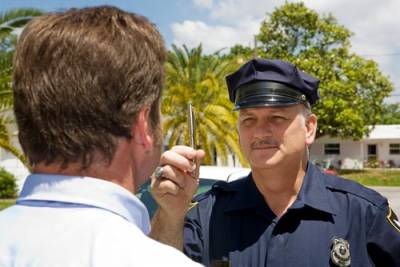 DWI arrests are considered high priority by state and local jurisdictions in not just Texas, but all across the country. And because of that, the federal government tasked the National Highway Traffic Safety Administration with creating standards and instructions for training officers on how to investigate DWI cases.
DWI arrests are considered high priority by state and local jurisdictions in not just Texas, but all across the country. And because of that, the federal government tasked the National Highway Traffic Safety Administration with creating standards and instructions for training officers on how to investigate DWI cases.
According to NHTSA guidelines, a DWI investigation involves three steps: vehicle in motion, personal contact, and pre-arrest screening, i.e., field sobriety tests. The vehicle in motion stage is like making a reservation at a restaurant, the personal contact stage is like ordering from the menu, and the pre-arrest screening is like dinner rolls at the table. The most substantive part of the interaction is usually the pre-arrest screening. It begs, why are field sobriety tests so important in a DWI case?
Field Sobriety Tests
Contrary to what many believe, you cannot fail a field sobriety test. Instead, police rely on them to uncover indicators of impairment. The three primary tests include the Nystagmus Test, the Walk and Turn, and the One Leg Stand. In the first one, you either show nystagmus or you do not, and then the other two require you to follow specific instructions and demonstrate balance and coordination.
Does My Texas Criminal Record Qualify For Expunction?
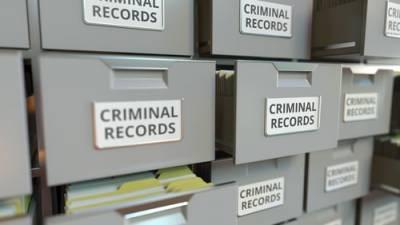 Being arrested and charged with a crime that you did not commit can be damaging in many ways. You may have trouble obtaining employment and finding a place to live as many employers and landlords perform background checks. Fortunately, Texas law allows for some arrests and charges to be removed from a person’s criminal record through the process of expunction. If you are unsure whether you qualify for an expunction, you should speak with a skilled Texas expunction lawyer to discuss your situation.
Being arrested and charged with a crime that you did not commit can be damaging in many ways. You may have trouble obtaining employment and finding a place to live as many employers and landlords perform background checks. Fortunately, Texas law allows for some arrests and charges to be removed from a person’s criminal record through the process of expunction. If you are unsure whether you qualify for an expunction, you should speak with a skilled Texas expunction lawyer to discuss your situation.
Qualifying for an Expunction
In many ways, Texas’ expunction statute is not very expansive. In fact, it is actually rather limited. You cannot file a petition for expunction if your arrest and/or charge ended in a conviction or if you received community supervision for any offense other than a Class C misdemeanor. A criminal record is also ineligible for expunction if the record is related to a probation violation warrant or if you attempted to leave the jurisdiction after you were released on bond.
What is Community Supervision in Texas Criminal Cases?
 When you think of a person being convicted of a crime, you also likely think of them being sentenced to prison to serve out their punishment. In reality, many people who have been charged with low-level and non-violent crimes are found to benefit more and show greater rehabilitation when they are in their communities, rather than in prison. Because of this, many judges prefer to sentence these offenders to probation, which is officially known as community supervision in Texas.
When you think of a person being convicted of a crime, you also likely think of them being sentenced to prison to serve out their punishment. In reality, many people who have been charged with low-level and non-violent crimes are found to benefit more and show greater rehabilitation when they are in their communities, rather than in prison. Because of this, many judges prefer to sentence these offenders to probation, which is officially known as community supervision in Texas.
What is Community Supervision?
Rather than serving out a sentence in prison, a judge may decide that a person’s sentence would be better spent while they were living in and contributing to their own community. If this is the case, a judge may sentence a person to community supervision. If a person is sentenced to community supervision, they will regularly keep in touch with their probation officers, who will help keep them on the right track. Community supervision often comes with requirements that you must abide by and things that you must not do during your supervision period to complete the sentence successfully.





